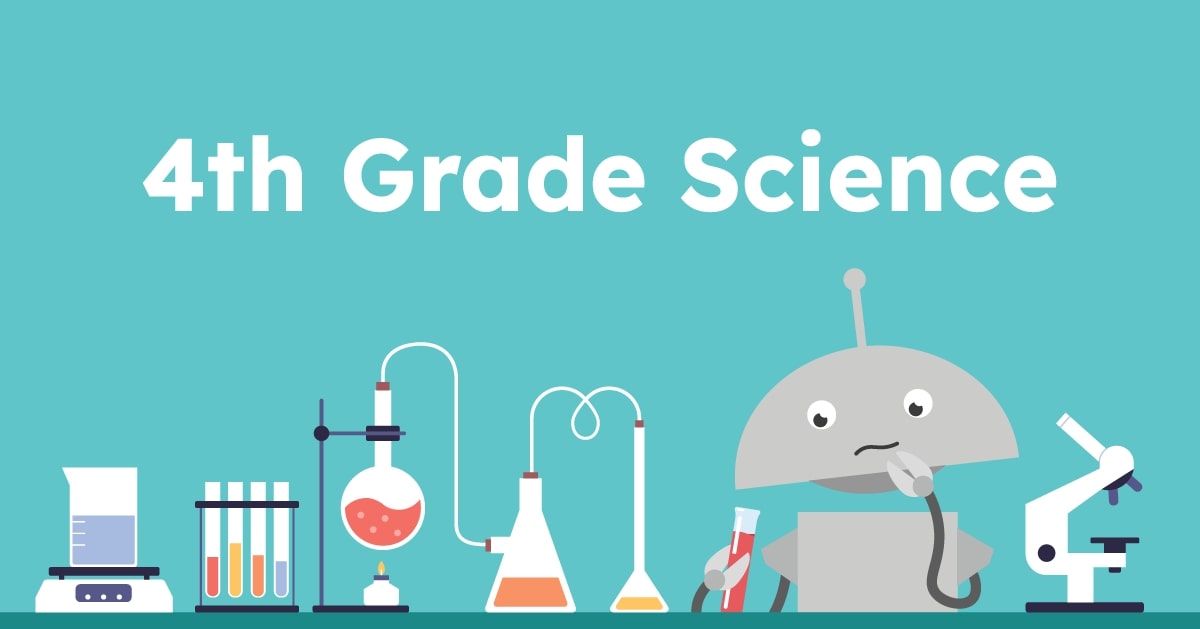4th Grade Science Curriculum
In fourth grade science, students take a closer look at the materials and forces that affect life on Earth and beyond. From teaching about matter, energy, and landforms to destructive events like natural disasters and pollution, fourth grade science topics bring previous topics into a larger context. With guided scientific explorations and fun offline experiments, learning about science in 4th grade is a blast at Miacademy!
Sample Lesson
You can find more of our science videos for fourth grade on Youtube at The Miacademy Learning Channel!
Is my student ready for 4th grade science lessons?
Before beginning fourth grade science topics, we recommend that students have a solid understanding of third grade science or complete our third grade Elementary Science course.
Your student is likely ready for fourth grade science standards if they can:
- Ask “why” and “how” questions about the world around them
- Understand basic cause-and-effect relationships
- Read and understand short nonfiction texts
- Write or draw to record observations
- Use basic math for measuring, comparing, or estimating
- Feel comfortable using tools like rulers, magnifying glasses, or thermometers
- Be willing to try new activities, even if they don’t succeed at first
- Explain their thinking or describe what they observe
- Work well with others and share ideas
- Recognize patterns and make logical connections
Free 4th Grade Science Worksheets – PDF Download
Each video lesson has printable science worksheets with additional activities to extend learning beyond the screen with a hands-on approach!
Click here to download a free sample PDF of our fourth grade science worksheets:
What are the 4th grade science standards?
In fourth grade science, kids dive deeper into the amazing world of living things and how they interact with their surroundings. They’ll get hands-on with experiments and observations, exploring plant and animal life cycles, the unique traits living things inherit, and how different creatures adapt to their environments. Your child will also start to uncover how ecosystems work — how plants, animals, and even people rely on each other — and what happens when those environments change. It’s all about sparking curiosity and helping them connect what they learn to the world around them!
The goal of fourth grade science standards is to help kids build a foundational understanding of how the natural world around us works. Miacademy achieves this by exploring topics like:
- Identifying different forms of energy such as electricity, light, sound, heat, and motion.
- Describing how energy is transferred through sound, light, heat, and electric currents.
- Explaining how waves (including sound and light) can transfer information.
- Investigating patterns of waves, including amplitude and wavelength.
- Analyzing how plant and animal structures support survival, growth, behavior, and reproduction.
- Understanding how animals process information through their senses.
- Examining how weathering, erosion, and deposition shape Earth’s surface.
- Distinguishing renewable and nonrenewable resources and their uses.
- Analyzing data to identify patterns in natural hazards like earthquakes and floods.
- Exploring how human activities impact the environment and how those impacts can be reduced.
- Defining and solving simple engineering problems, considering criteria and constraints.
- Designing, testing, and refining solutions to a given problem using the engineering design process.
Standards can vary by state, so be sure to check what’s required where you live.
Scope and Sequence
General Science
In 4th grade science, students begin hands-on investigations about matter, energy, motion, and machines, exploring concepts like chemical changes, gravity, and magnetism. They also start using the scientific method to solve problems step by step. Along the way, they learn how energy flows through ecosystems, discover the difference between renewable and nonrenewable resources, and begin to understand the impact of pollution on our planet.
Miacademy’s Online 4th Grade Homeschool Curriculum
Our fourth grade science curriculum encourages your child’s natural curiosity with hands-on, inquiry-based learning! Through exciting topics like energy, ecosystems, motion, and Earth’s resources, students build a solid foundation in science while strengthening their problem-solving and critical thinking skills. Designed by experienced educators, this approach helps your child gain confidence and connect science to the world around them — skills that support success in every subject!
Plus, one of the best things about our K-8 science curriculum is homeschooling with flexibility! You get full customization over your lesson plans and assignments to fit your child’s unique learning needs. Students can pick up where they left off and begin working on new topics.
Our family of accredited curricula covers everything from lab safety to physics and chemistry and adapts easily to your child’s educational needs.
Whether you homeschool full time or are looking to supplement a public school education, we’re here to support you! Wondering if Miacademy’s fourth grade homeschool curriculum can be a good fit for your student? Start a chat with one of our friendly customer service agents below! They’ll be happy to help you with any questions you may have.



